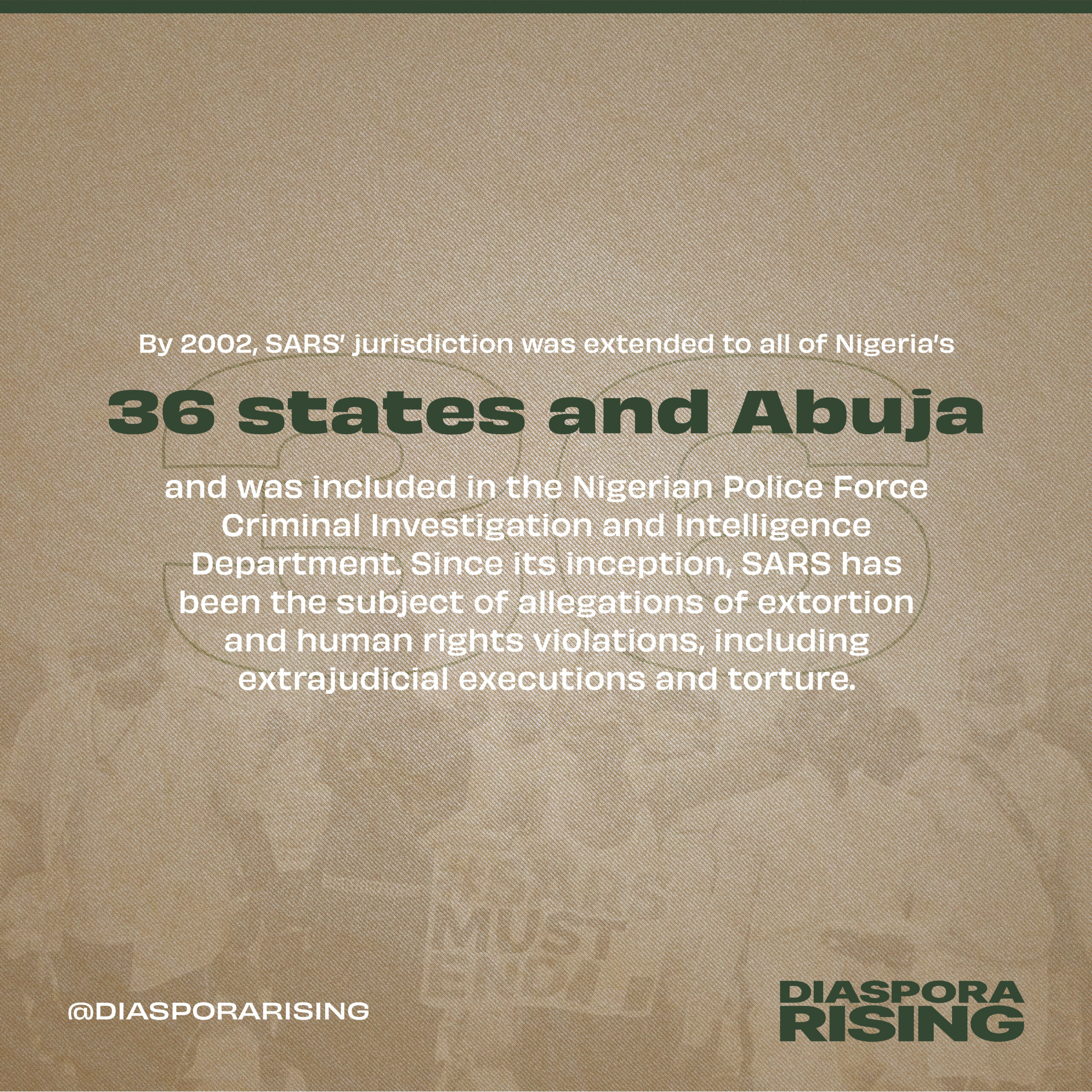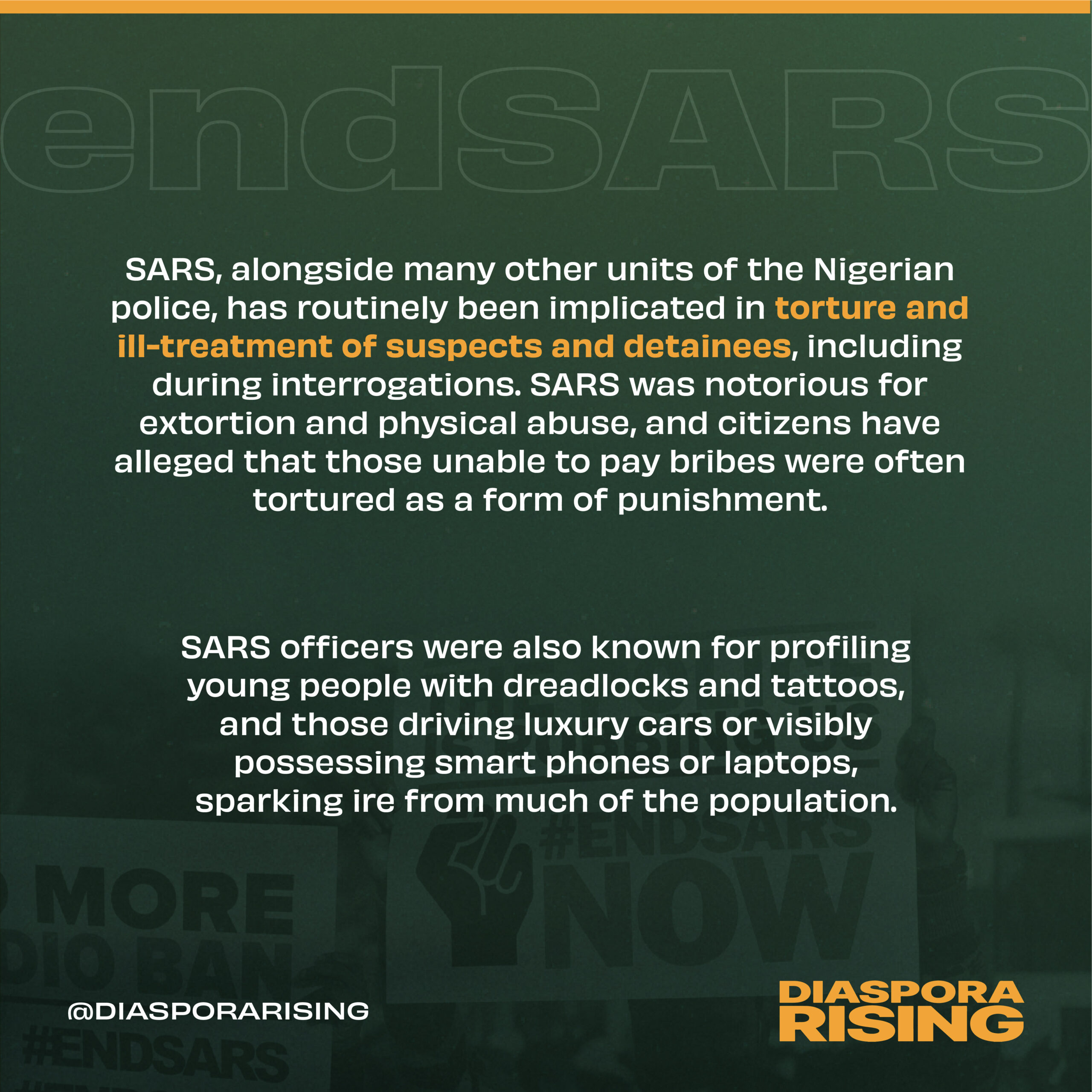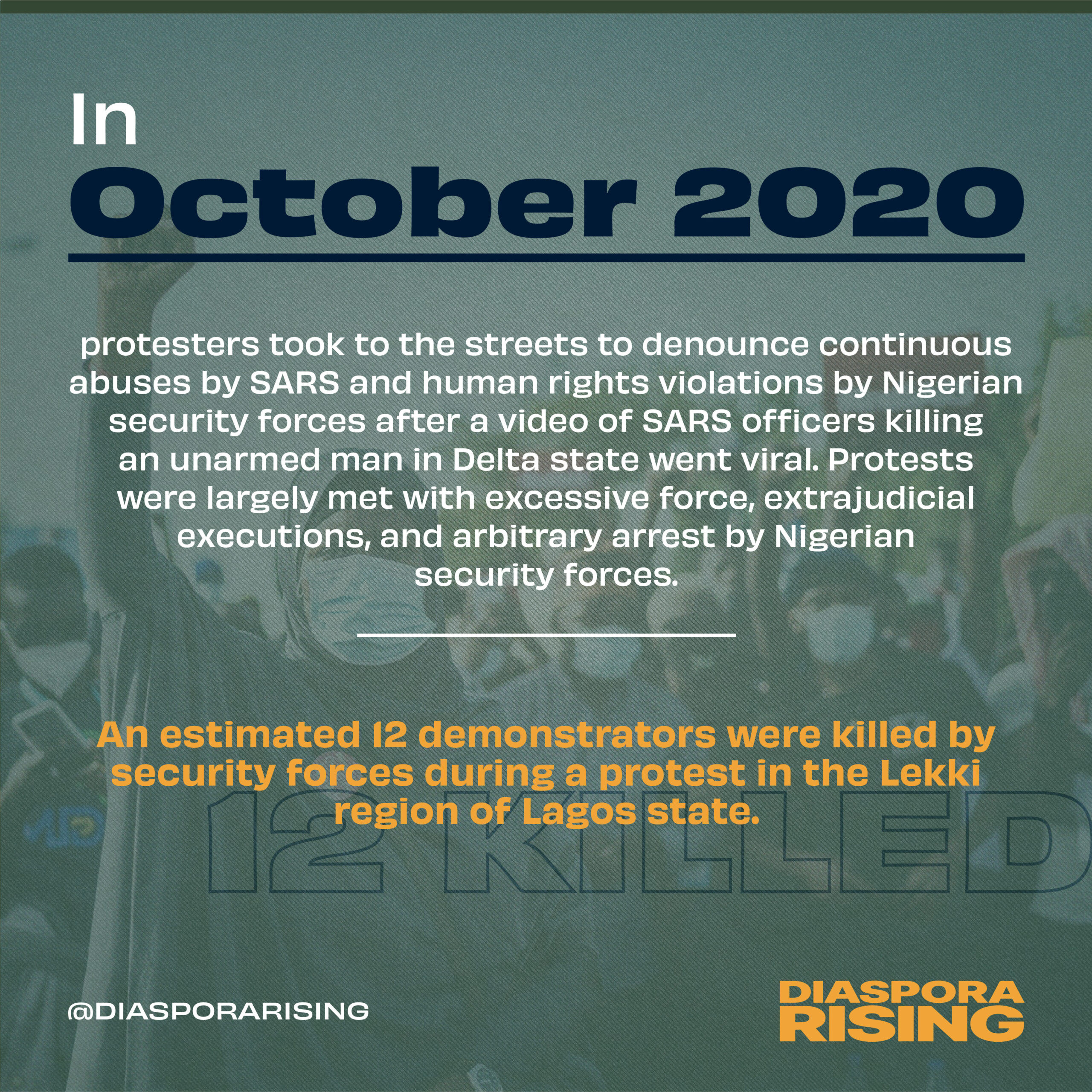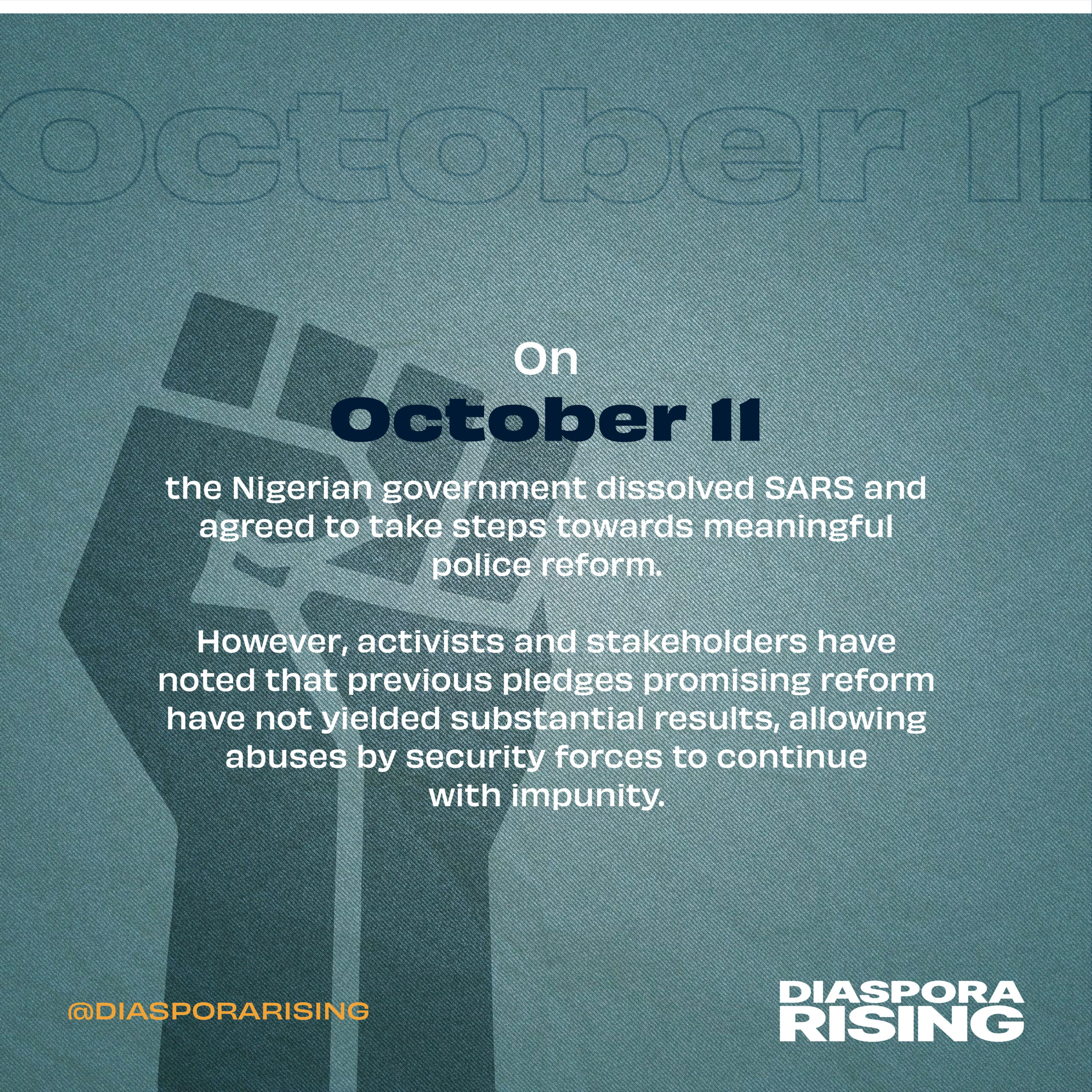HOW WE GOT HERE
#EndSARS
The Special Anti-Robbery Squad (SARS) was established by Nigeria’s military government in 1992 to combat robbery and violent crimes. The squad was formed amidst a rise in violent crimes in Lagos and initially, SARS officers operated exclusively in Lagos undercover and in plain clothes without any government insignia.
By 2002, SARS’ jurisdiction was extended to all of Nigeria’s 36 states and Abuja and was included in the Nigerian Police Force Criminal Investigation and Intelligence Department. Since its inception, SARS has been the subject of allegations of extortion and human rights violations, including extrajudicial executions and torture.[1]
SARS, alongside many other units of the Nigerian police, has routinely been implicated in torture and ill-treatment of suspects and detainees, including during interrogations. SARS was notorious for extortion and physical abuse, and citizens have alleged that those unable to pay bribes were often tortured as a form of punishment.[2] SARS officers were also known for profiling young people with dreadlocks and tattoos, and those driving luxury cars or visibly possessing smartphones or laptops, sparking ire from much of the population.[3]
In October 2020, protesters took to the streets to denounce continuous abuses by SARS and human rights violations by Nigerian security forces after a video of SARS officers killing an unarmed man in Delta state went viral. Protests were largely met with excessive force, extrajudicial executions, and arbitrary arrest by Nigerian security forces. An estimated 12 demonstrators were killed by security forces during a protest in the Lekki region of Lagos state.
On October 11, the Nigerian government dissolved SARS and agreed to take steps towards meaningful police reform. However, activists and stakeholders have noted that previous pledges promising reform have not yielded substantial results, allowing abuses by security forces to continue with impunity.[4]
[1] “Nigeria’s SARS: A brief history of the Special Anti-Robbery Squad”, Amnesty International, October 22, 2020, https://www.aljazeera.com/features/2020/10/22/sars-a-brief-history-of-a-rogue-unit (October 7, 2021).
[2] “Welcome to Hell Fire: Torture and Others Ill-treatment in Nigeria”, Amnesty International Report, September 2014.
[3] “Nigeria: Horrific reign of impunity by SARS makes mockery of anti-torture law”, Amnesty International, June 26, 2020, https://www.amnesty.org/en/latest/news/2020/06/nigeria-horrific-reign-of-impunity-by-sars-makes-mockery-of-anti-torture-law/ (accessed October 7, 2021).
[4] “UPDATE: Nigeria Police Boss, Adamu, Disbands SARS After Days of Protests by Citizens,” Sahara Reporters, October 11, 2020, http://saharareporters.com/2020/10/11/update-nigeria-police-boss-adamu-disbands-sars-after-days-protests-citizens (accessed October 7, 2021). ; “Nigeria: attacks on #EndSARS protesters leave 10 dead and hundreds injured”, Amnesty International October 15, 2020, https://www.amnesty.org.uk/press-releases/nigeria-attacks-endsars-protesters-leave-10-dead-and-hundreds-injured (accessed October 7, 2021).
ENOUGH IS ENOUGH
#ENDSARS + BEYOND
It’s no secret that the police in Nigeria have a reputation for bribery, harassment, extortion, and in some extreme cases, murder. The stories we each know too well as our friends, family and people we care about have lived through this. And some haven’t. We are traumatized and many are terrified at what their fate may be if they encounter a member of SARS on the wrong day. The stories of sexual harassment, rape, and other forms of abuse are intolerable. And we stand in solidarity with our siblings as they declare –
#ENDSARS
TIMELINE






